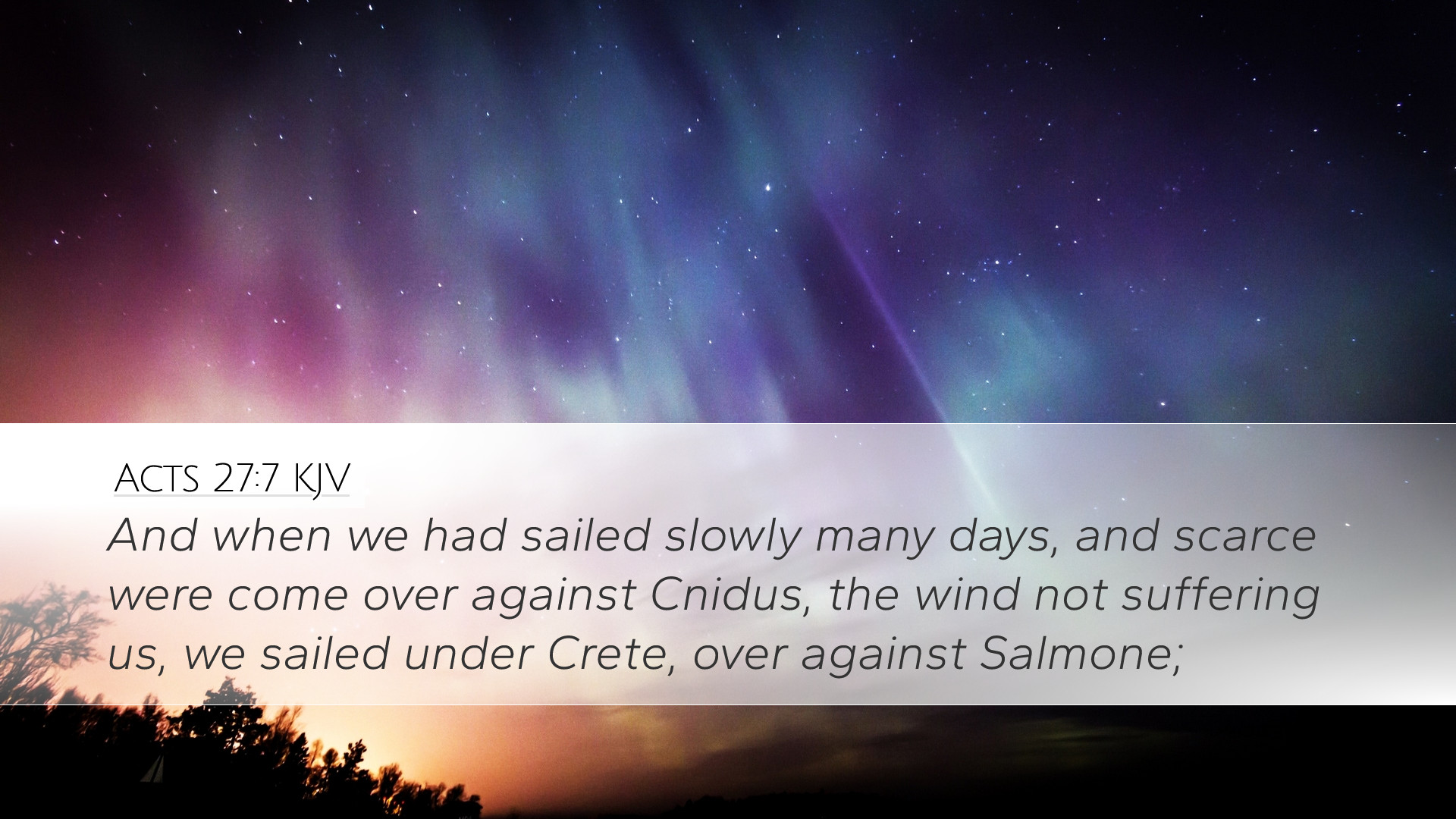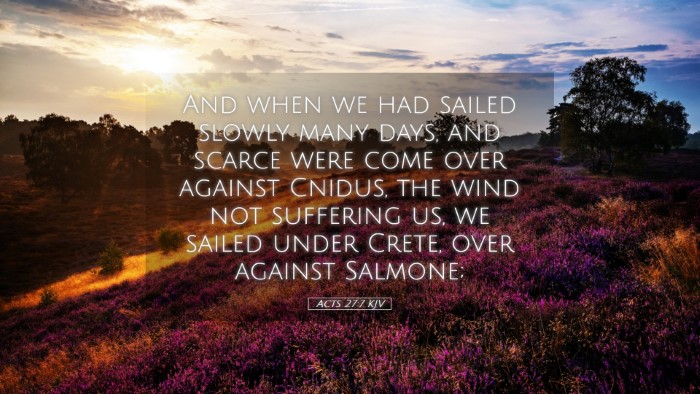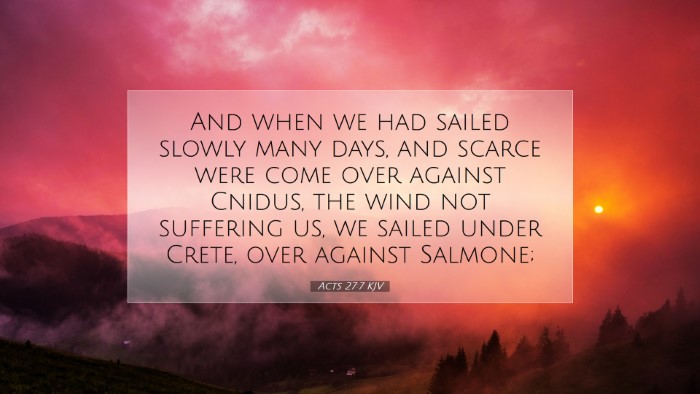Acts 27:7 Commentary
Bible Verse: "When we had sailed slowly many days, and scarce were come over against Cnidus, the wind not suffering us, we sailed under Crete, over against Salmone;" (Acts 27:7, KJV)
Introduction
This passage from Acts 27:7 takes place during Paul's journey to Rome, where he is a prisoner aboard a ship. The verse captures a moment of navigation, highlighting both geographic locations and the challenges faced at sea. The insights drawn from the commentaries of Matthew Henry, Albert Barnes, and Adam Clarke will provide a deeper theological understanding and practical application for readers.
Navigational Challenges
Matthew Henry's Commentary: Henry emphasizes the difficulty of navigation at sea, especially during the season represented in this passage. His commentary illustrates not only the physical challenges Paul and the crew faced but also symbolizes the trials believers endure in their spiritual journey. The phrase "sailed slowly" reflects a period of waiting, indicating that God's purposes are often achieved through patience and caution.
Albert Barnes on Weather Conditions: Barnes notes that the adverse winds significantly delayed their progress. He suggests that these difficulties were part of the divine plan, teaching believers to trust in God's timing. Just as the ship had to navigate through the winds and waves, Christians must navigate the storms of life with faith in divine providence.
Adam Clarke's Observations: Clarke provides detailed geographical insights, pointing out the significance of Cnidus and Crete in the ancient world. These locations were critical for maritime routes, indicative of God's sovereignty in orchestrating events that led Paul to Rome — fulfilling his mission. Clarke encourages readers to see this as a metaphor for the church's journey amidst cultural and spiritual challenges.
Theological Implications
Divine Providence: The events described in Acts 27:7 offer rich material for discussing the doctrine of providence. Each delay and every challenge is under God's control, leading His people to accomplish His plans. This notion reassures believers that what seems like mere chance or accidents in life are, in fact, directed by God's hand.
The Nature of Faith: As the ship’s crew dealt with external conditions, this scenario can illustrate the importance of faith amid uncertainty. The cautious, measured actions of Paul and the other sailors exemplify the wisdom of placing one's trust in God's guidance, even when circumstances appear daunting.
Practical Applications
Patience in Trials: The necessity of sailing slowly amidst adverse conditions applies to believers today. It reminds Christians to embrace periods of slow spiritual growth or stagnation as opportunities for reflection and divine preparation. Each phase serves God’s purposes, refining character and deepening faith.
Responding to Adversity: Commentators highlight the importance of responding well to adversity, as depicted in this passage. Believers are called to navigate their trials thoughtfully and prayerfully, seeking guidance through prayer and the counsel of fellow believers.
Conclusion
Acts 27:7 encapsulates a moment of transition filled with obstacles and divine orchestration. Insights from public domain commentaries reveal the layers of understanding available in this verse, enriching both theological reflection and practical application. As pastors, students, theologians, and scholars engage with this text, may they find encouragement and inspiration in the story of Paul, who steadfastly navigated the complexities of life while trusting in God's faithful hand.


